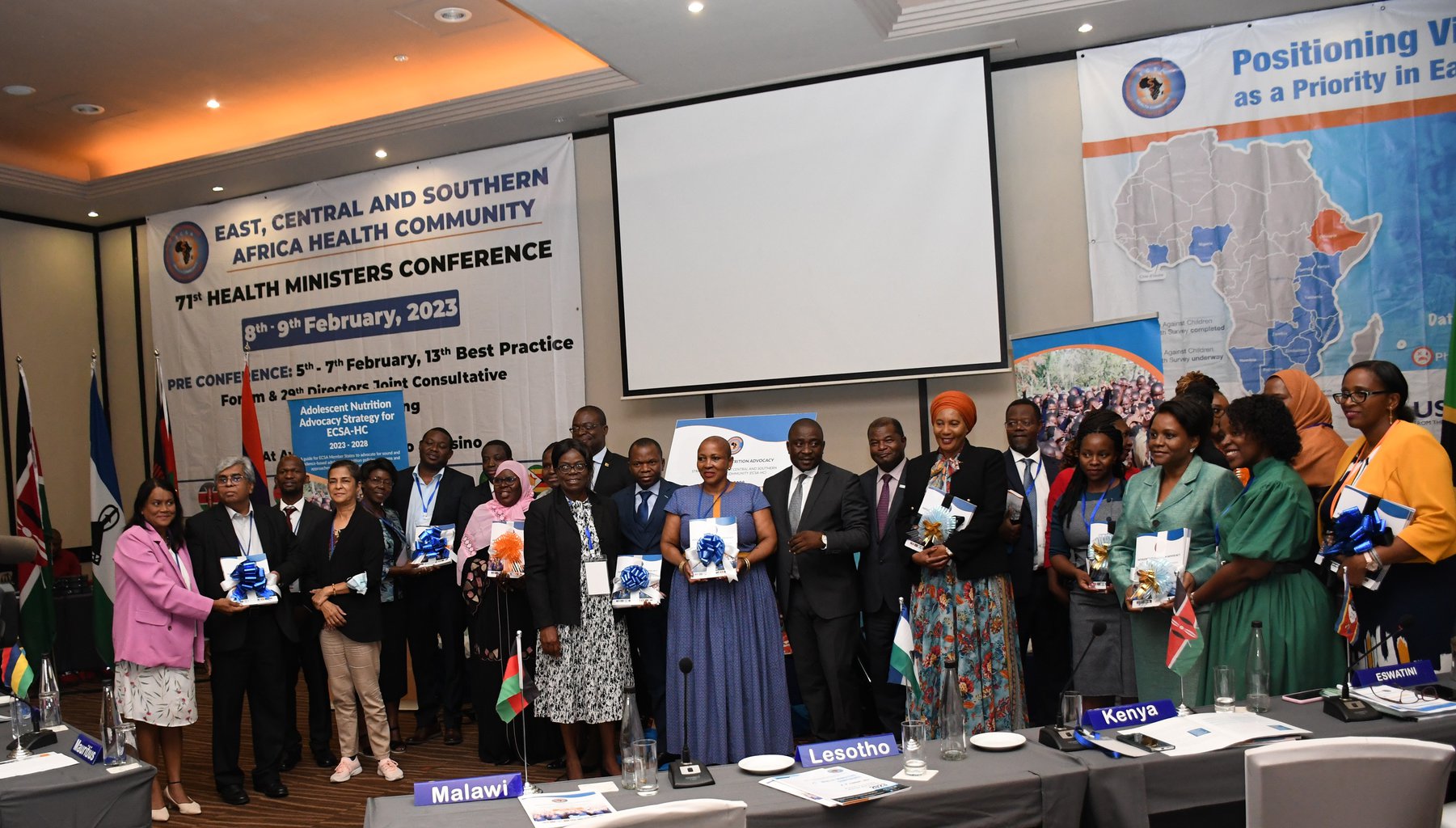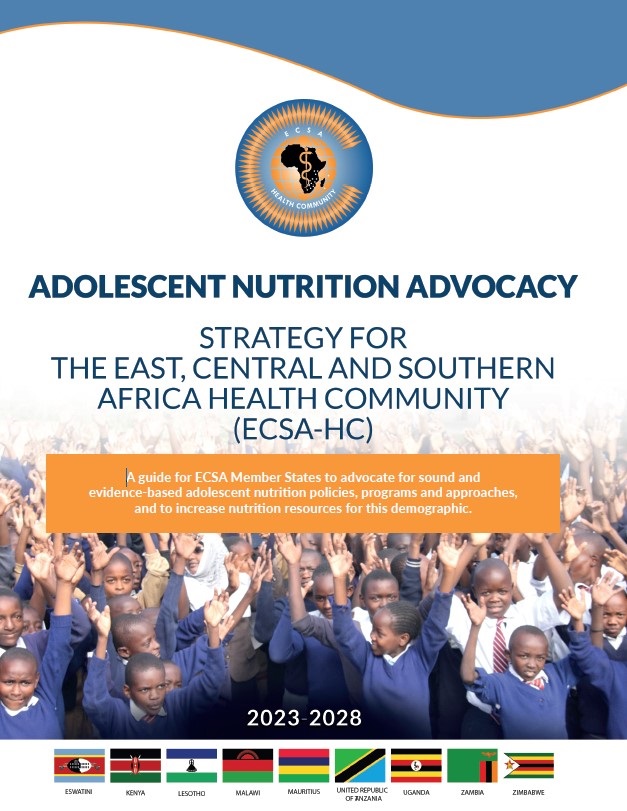Field Stories
Ten must see global nutrition stories from 2023
December 18, 2023
Adolescent nutrition advocacy for ECSA-HC countries
The East Central and Southern Africa Health Community (ECSA-HC) launched its five-year Adolescent Nutrition Advocacy Strategy that aims to reduce anaemia, increase programming and improve adolescent nutrition among its member states.
Posted on February 13, 2023
Maseru, KINGDOM OF LESOTHO – The East, Central and Southern Africa Health Community (ECSA-HC) unveiled its Adolescent Nutrition Advocacy Strategy for its member states during the 71st Health Ministers Conference on February 8th in Maseru, the Kingdom of Lesotho. The Chairperson of the Health Minsters Conference (HMC) and Zimbabwe’s Health Minister Hon. Prof. Amon Murwira launched the five-year (2023-2028) strategy that was developed by ECSA-HC with financial and technical support from Nutrition International.

The Adolescent Nutrition Advocacy Strategy will be implemented by governments and partners in Kenya, Lesotho, Malawi, Mauritius, Eswatini, United Republic of Tanzania, Uganda, Zambia and Zimbabwe. It aims to reduce anaemia among adolescent girls to below 20 percent, increase adolescent nutrition funding by five percent, reduce the prevalence of adolescent overweight and obesity by two percent and reduce the prevalence of undernutrition among boys and girls by three percent.
The strategy notes that investing in adolescent nutrition has far reaching benefits and should be a priority for governments, the private sector, and international organizations.

The following are the key recommendations in the strategy:
“We commend ECSA-HC for the development of the Adolescent Nutrition Advocacy Strategy based on the context of adolescent nutrition status in the region, the policy environment and the existing interventions and programs to drive transformative change.
— Hon. Prof. Amon Murwira, Chairperson, Health Ministers Conference
Hon. Murwira called upon governments and partners to support the implementation of the ECSA-HC Adolescent Nutrition Advocacy Strategy. “As governments, we recognize the need to promote the prioritization of adolescent nutrition at all governance levels and sustain the momentum to scale up evidence-informed interventions targeting this group,” said Hon. Murwira. “It is for this reason we commend ECSA-HC for the development of the adolescent nutrition advocacy strategy based on the context of adolescent nutrition status in the region, the policy environment and the existing interventions and programs to drive transformative change.”
The Director General of ECSA-HC Prof. Yoswa Dambisya highlighted the previous resolutions and directives that were made as a result of the 69th ECSA HMC of 2020 (ECSA/HMC69/R3: Efforts to improve adolescent and young people’s health, which directed, among others, the strengthening of implementation of policies for adolescents.
Dr. Richard Pendame, Nutrition International’s Regional Director for Africa, hailed the launch of the strategy in Lesotho. “Since 2016, Nutrition International has provided support to countries to plan, implement, build capacity and advocate for prioritization of adolescent nutrition in the African region,” he remarked at the launch. “Delivering on this pledge, Nutrition International is honoured to have provided technical and financial support to ESCA-HC to develop the Adolescent Nutrition Advocacy Strategy. I am confident that [this strategy] will contribute to a significant reduction in malnutrition during this critical stage, which is essential to support growth and lay the foundation for a healthy and productive future.”
Malnutrition is a public health concern that affects over fifty-six million adolescents living in ECSA-HC member states. Nearly fifty percent of adolescents are stunted, while approximately thirty percent of adolescent girls are anaemic, impacting their school performance, productivity, and future reproductive health outcomes.